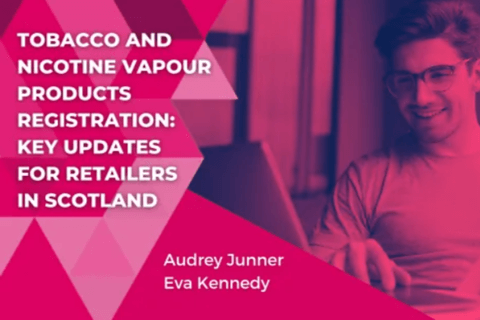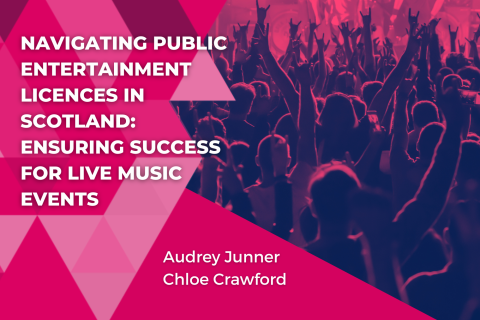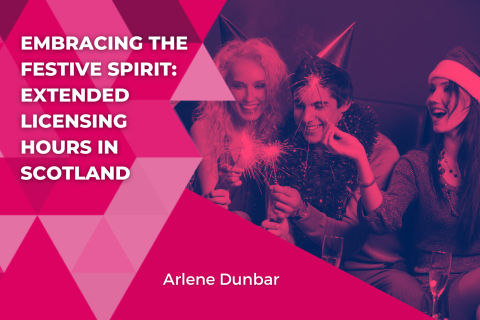Public Entertainment Licensing
Public Entertainment Licensing Lawyers Glasgow, Scotland
What is a Public Entertainment Licence (PEL)?
A licence issued by the Licensing Authority (Council) which permits certain types of entertainment to be offered to the public or for the public to take part in activities. A PEL is required regardless of whether payment is made for entry or participation.
When is a PEL required?
The scope of Public Entertainment Licensing varies hugely across Scotland. Each individual Council requires to state what type of entertainment they consider ‘licensable’ by way of a resolution. This may include concerts, funfairs, agricultural shows, circuses, firework displays, snooker, children’s play centres etc. Any entertainment not provided for within the resolution falls outwith the scope of the regime.
General Exemptions
Regardless of where you are in Scotland a PEL is not required in the following circumstances:
- Where the place of public entertainment is an athletic or sports ground, while being used as such;
- An educational establishment while being used as such;
- Premises belonging to or occupied by any religious body while being used wholly or mainly for purposes connected with that body;
- Premises which hold a Theatre Licence or Cinema Licence;
- Premises that hold a Premises Licence issued under the Licensing (Scotland) Act 2005;
- Premises that hold an Indoor Sports Entertainment Licence;
Specific Exemptions
Each Licensing Authority has the ability to determine area specific exemptions. For example, they may resolve that a PEL is not required for spectator based entertainment for less than 500 persons or that community based events are exempt. This information is generally available on the licensing pages of the Council’s website.
I already have a Premises Licence or Occasional Licence do I still need a PEL?
If the entertainment being provided is referred to in the resolution and none of the exceptions apply you will need a PEL even where you have applied for an Occasional Licence. A previous exemption was removed from legislation.
If you have a Premises Licence you will only need a PEL where the entertainment is being provided outwith your licensed hours.
My event is just for one day – do I still need a PEL?
It is possible to apply for a PEL on a temporary basis. The process is more streamlined and the fees are significantly lower. A temporary Public Entertainment Licence (TPEL) can last from 1 day to 6 weeks.
How do I apply?
Allow for a long lead in time for a PEL or a TPEL as some Councils require up to 6 months’ notice, particularly for large scale events. There may also be a pre-application consultation stage to consider. Contact the team on 0141 333 0636 for advice and assistance with your application.
Key Contacts


Get in touch today
Licensing Portal Login
News & Insights
Read the latest insights from our team

Earlier this year, the Scottish Government introduced important updates to the online Register of Tobacco and Nicotine Vapour Products. Those already involved in the sale of tobacco and vapes will be familiar with the requirement to register, but these changes

With the recent high-profile acquisition of World Wrestling Entertainment (WWE) by Netflix, the world of sports entertainment has seen a resurgence in professional wrestling this year. As a result, licensed premises throughout Scotland may consider showing late-night premium live events

The 1 am pilot scheme in Glasgow City Centre has provided a much-needed boost to the City’s late-night economy over the past year, and on Friday, the 9th of May, the City of Glasgow Licensing Board agreed to make it

Research conducted by Planet Cruise travel experts last year found that Glasgow took the top spot globally for the best city to visit for live music, beating out Lyon and Zurich to take the crown. Scottish crowds are also celebrated

Navigating the world of licensing and regulations for children and young persons can be complex. Whether you’re working in the hospitality sector, a parent, guardian, child or young person yourself, understanding the legal requirements is crucial. Let’s dive into the

As the festive season approaches, the hospitality sector gears up for extended celebrations. With Christmas and Hogmanay just around the corner, Licensing Boards have announced extended licensing hours for bars, clubs, and other licensed venues. What Are Extended Licensing Hours?
Our Services
Are you looking for something else?





